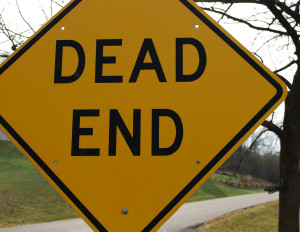by Joel D. Canfield, @JoelDCanfield
To begin, tell me a little bit about yourself. How many of these have you experienced in your writing life during the past two years? I’ll include checkboxes so you can keep track.
Never finding the time to write
Making the time but not writing
Dreaming of writing but never getting started
Starting but never finishing
Starting but never finishing that one particular piece
Thinking you can do it without help
Thinking you’re beyond help
A love/hate relationship with your writing
Focusing on unhelpful negative feedback and ignoring positive feedback
Focusing on positive feedback and ignoring helpful negative feedback
Wanting to write deep but writing shallow
Writing for others instead of yourself
Writing for money but not treating it like a business
Reading about writing instead of writing
Seeking out feedback before you’re ready
Seeking out the wrong level of feedback
Ongoing health challenges like
Unexplained fatigue (physical or mental)
Mysterious illness (a neverending or recurring cold or flu)
Injuries (constant little accidents)
Addiction of any kind (substance, activities, self-destructive habits)

How many did you check? (Put the number right here)
Is it more than zero? I’ll bet it is.
If so, you’re facing Resistance.
I’ve written nearly 20 books and 200 songs in the past 11 years. I checked 17 boxes. SEVENTEEN.
I’m facing Resistance.
You’re facing Resistance.
Resistance? What’s That?
According to bestselling author Steven Pressfield in his groundbreaking work The War of Art Resistance is the mental and emotional pushback we feel when we dare greatly by being creative. It is our unconscious mind protecting us from what it thinks is the danger of emotional vulnerability. It shows up in all the ways in that checklist above, and more.
Resistance is a bully. It will stand in your way and stop your writing. It will knock you down and hurt you, emotionally, even physically.
Resistance strikes nonfiction and fiction authors alike. (Memoirists, are you listening?) Writing a nonfiction book is still a creative endeavor and will expose you to the same fears.
It will stop you from writing using the tools you checked off in that list above.
It’s Not Just You & I
Who was this loser?
Stephen King. Stephen 350 million books sold King.
This is a quote from his On Writing which, although not precisely instructional, is the most inspiring book I’ve read when it comes to staying the course as a writer.
This is the quote that gave me my writing life back. (I’ll tell you that story someday if you like.)
Our inborn desire to have our work respected can lead to problems if we put what others believe about our “God-given talent” ahead of what we choose to write. It’s one of many ways Resistance twists natural feelings into quicksand.
What’s a Writer to Do?
You cannot defeat Resistance once and be done with it. It’s part of our mental and emotional makeup. What you can do is make it irrelevant. Note that I don’t say “ignore it” because you can’t ignore a bully. But if you defuse them, do things to take away their power, they are no longer a threat. Like the bully at school (or, frankly, in the office) they still show up every day. But we don’t have to keep giving them our lunch money.
Being a writer is hard. You don’t have to do this alone.
Too many writers face the emotional struggle to write without proper support. After years of writing about it, I’ve created a forum to help writers and artists deal with writer’s Resistance.
It’s not going to be a collective moan-fest or chat-fest. It’s a guided learning environment, a community of writers making a safe place for some “you’re not alone” emotional support. It will also cover practical and actionable tools and processes to get you writing and keep you writing.
Membership is $5 per month or only $25 for the whole year. Questions? Comments? Shout ’em out below and I’ll answer every one.
Battling Writer's Resistance (via @JoelDCanfield ): Click To Tweet


